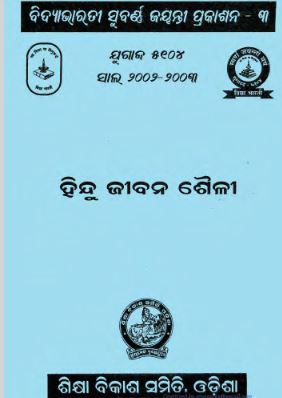Hindu Jiban Saili published by Siksha Bikas Samiti in 2002, is a comprehensive essay collection that intricately explores the nuances of Hindu lifestyle and philosophy. This thought-provoking text delves into the everyday lives of individuals who identify with Hindu traditions, celebrating the rich cultural heritage while critically analyzing its relevance in modern society.
The book is structured into various essays that articulate distinct aspects of the Hindu way of life. Each sub-essay addresses a different theme, ranging from the significance of rituals and customs to the roles of family, community, and spirituality in shaping an individual’s identity. Siksha Bikas Samiti aims to provide readers with a holistic understanding of how traditional values coexist with contemporary challenges, thereby facilitating a dialogues about the continuing evolution of Hindu practices.
In the opening sections, the book establishes the foundational principles of Hindu philosophy. It explains the core concepts such as Dharma (righteousness), Artha (prosperity), Kama (pleasure), and Moksha (liberation), aiding readers in their comprehension of how these tenets influence daily life. The author emphasizes that Hinduism is not merely a religion but a comprehensive lifestyle encompassing ethics, rituals, and emotional understanding, portraying it as a way of living in harmony with oneself, others, and the universe.
As the essays unfold, they delve into various lifestyle aspects, like the importance of family and social structures in Hindu society. The exploration of familial bonds highlights the significance of respect for elders, the role of women, and the responsibilities of each family member. Through thoughtful narratives and anecdotes, the reader is drawn into the warmth of family life, illustrating how these relationships are both a source of strength and a foundation for personal growth.
The book also examines the cultural rituals that constitute the fabric of Hindu existence. Ceremonies such as weddings, festivals, and life-cycle rituals are presented as vital components that reinforce communal bonds and individual identity. These practices are not simply seen as outdated traditions; instead, the book argues that they represent an evolving cultural narrative that continues to adapt while maintaining their core values.
Furthermore, “Hindu Jiban Saili” tackles the intersection of modernity and tradition, a recurring theme that resonates throughout the essays. The author addresses the challenges that contemporary Hindus face, such as the impact of globalization, technological advancements, and urbanization. By highlighting the need for balance between modern aspirations and traditional values, the book encourages readers to forge a lifestyle that honors their heritage while embracing the future.
The essays in “Hindu Jiban Saili” also delve into spirituality and ethics, emphasizing the connection between personal well-being and communal health. The discussion encourages self-reflection and personal responsibility, highlighting how one’s actions influence not just individual growth, but also the larger community. This aspect reinforces the idea that a fulfilling life encompasses both personal satisfaction and a commitment to the collective good.
In summary, “Hindu Jiban Saili” stands as a rich resource for anyone interested in understanding the complexities of Hindu life. With its blend of philosophical inquiry, cultural exploration, and practical advice, the book invites readers to appreciate the depth and dynamism of Hindu traditions while cultivating a lifestyle that is both meaningful and relevant in today’s rapidly changing world. By fostering an appreciation for heritage coupled with a vision for the future, Siksha Bikas Samiti’s work endures as a significant contribution to the discourse on Hindu lifestyles.
Books Info
| Books name | Hindu Jiban Saili/ହିନ୍ଧୁ ଜୀବନ ଶୈଳୀ |
| Author | Siksha Bikas Samiti |
| No Of pages | 33 |
| Publisher | Shiksya Bikasha Samiti |
| Publication | 2002 |
| Printed At | Skynight |
| Distributor | NA |

